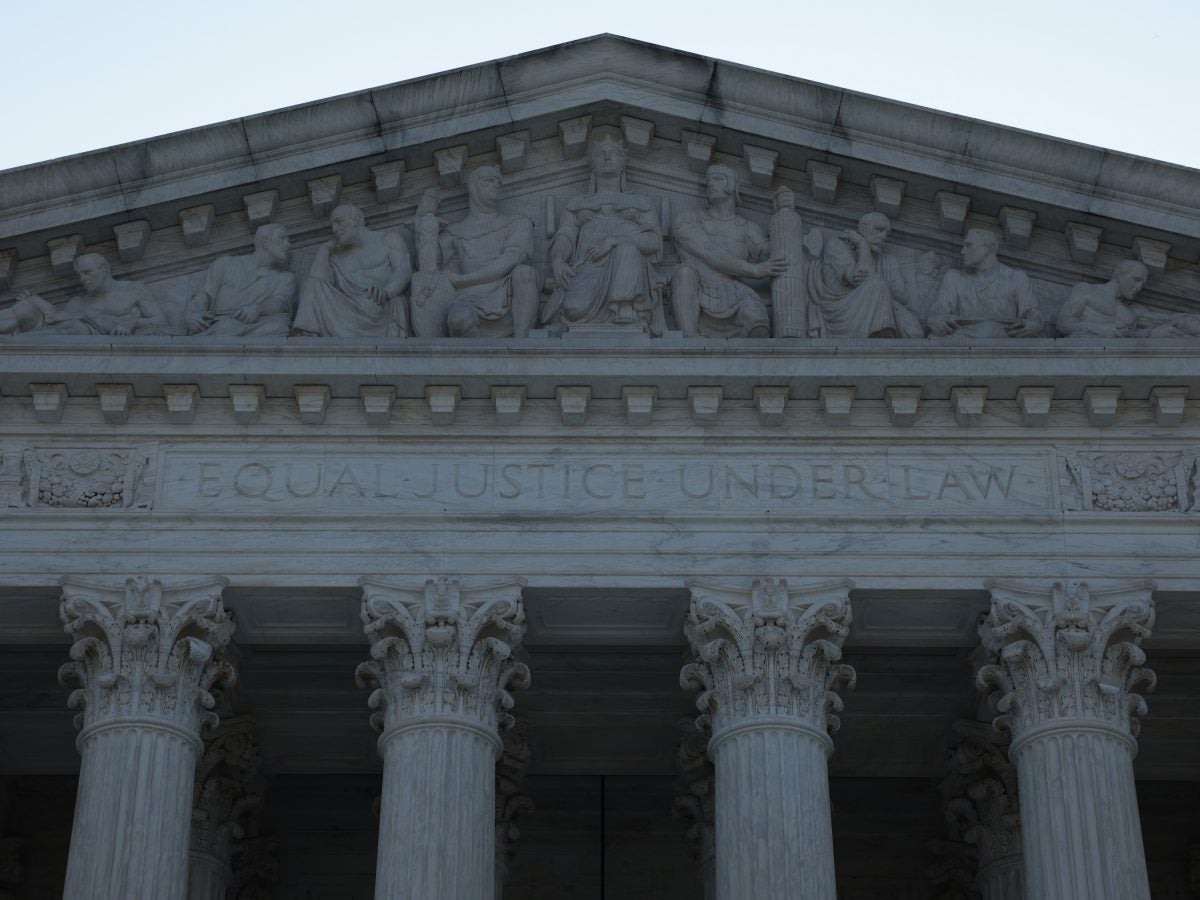
After staying silent on a Texas law that would ban abortions at six weeks, the Supreme Court officially issued a ruling Wednesday that would allow the law to stay in effect.
The law, Senate Bill 8 (SB 8) is considered one of the most restrictive abortion bills in the country, and it follows a string of ultra-conservative laws Texas has been passing in its recent history. This is bad news for a state where Black women and other women of color will be disproportionately affected by the ban.
The majority opinion in Wednesday’s decision came down to a procedural matter. Abortion providers sought an emergency injunction to block Texas from letting SB8 go into effect. The providers named government officials in their injunction application. However, the Texas law prohibits government officials from enforcing its provisions. In an unusual turn, the law leaves it to the general public to enforce it. Lawyers for the state of Texas were then able to argue that government officials weren’t really the parties who can stop the law from going into effect, since they’re not who will enforce it.
SCOTUS agreed with this reasoning, stating that “federal courts enjoy the power to enjoin individuals tasked with enforcing laws, not the laws themselves…And it is unclear whether the named defendants in this lawsuit can or will seek to enforce the Texas law against the applicants in a manner that might permit our intervention.”
SB8 bans abortions before many women even know they’re pregnant. Worse, it incentivizes private citizens to act as deputies to enforce the law, allowing them to sue anyone who “performs or induces an abortion in violation of” SB8 or “aids or abets” these abortions. Just intending to do these things is illegal under SB8, even if they haven’t been done yet. In return, the person who sues can be awarded at least $10,000.
As noted earlier, SB8 prohibits any government official from enforcing the law. So if you want to sue the government, you can’t. Instead, an abortion provider (or anyone else who violates SB8) has to wait to be sued by a random citizen and defend themselves in court in order to provide an abortion. This makes abortions way more complicated than they need to be, tying up abortion access in the courts, and creating a chilling effect on those who want to provide or receive them.
It’s estimated that 85% of abortions in Texas are for women who have been pregnant for at least six weeks, so SB8 would effectively ban the majority of abortions in the state. This stringent legislation follows Texas’ pattern of stripping women, and disproportionately Black women, of their reproductive rights.
There’s a class component here as well: “Most women in Texas who can afford it will get their abortions out of state,” Lawrence Gostin, a constitutional law professor at Georgetown, told the Texas Tribune. “But for poor and rural women, the effects on their physical and mental health could be devastating.”
SB8 follows a the introduction of related laws around the country, so-called fetal heartbeat bills, many of which were blocked by the courts because they run counter to what was permitted under the landmark Roe v. Wade decision.
Roe permits an abortion until a fetus is “viable,” which is around 24 weeks. These “heartbeat” bills instead prohibit abortions around the time advanced technology can detect an embryo’s flutter, which is generally at six weeks. Meaning these “fetal heartbeat” bills apply to abortions where neither a fetus nor a heart is present, since an embryo doesn’t have a heart. In effect, Roe v. Wade is nullified in Texas even though it has yet to be officially overturned.
The Texas law is one of the few laws of its kind that wasn’t blocked, likely because of the states’s unusual legislative scheme. Texas legislators passed the bill in May 2021, and it was set to be effective September 1, 2021. Abortion providers tried to get an emergency order against SB8 to block it from going into effect Wednesday. But lawyers for Texas were able to argue that the providers who asked for the order named government officials who “explicitly do not enforce the law,” (since it’s illegal for them to enforce it under SB8), and it would thus be beyond the Supreme Court’s authority to step in.
So the law can stay on the books for now, and whether SB8 is constitutional is a question that won’t be addressed until a private citizen sues a provider and the courts hash it out. That is, unless the federal courts decide to eventually act on the emergency order.
But the failure of the Supreme Court to act before the law went into effect and its ruling on Wednesday suggests the conservative majority is perfectly fine permitting restrictive state laws like those in Texas to continue unabated, even if the Court doesn’t explicitly overturn Roe v. Wade.